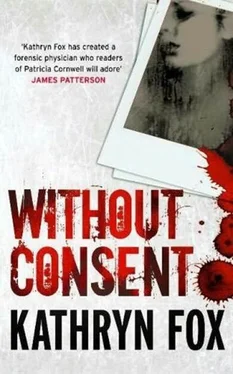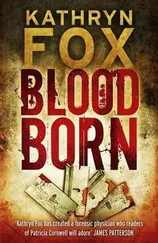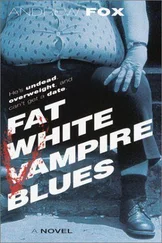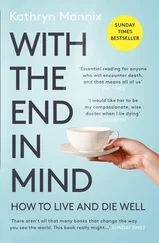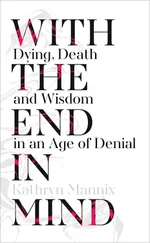“The information on the sexual assaults has to come from the police. I’m not in a position to discuss that at this stage.”
“Even though I hear you examined the victims and are involved in the police investigation? Of course, I wouldn’t ask you to do anything unethical.” Veronica smirked. “I’d like you to go over the pathological findings in the murder of Eileen Randall, from twenty years ago. She’s the fourteen-year-old girl Willard was convicted of raping and killing.” She paused, then added, “I also wanted to ask you what you know about Asperger’s syndrome.”
Anya thought of her recent conversation with Ben about the preschool boy he would not play with. “It’s considered a variant of autism.”
“Excellent. There’s been a question as to whether or not Willard has the syndrome and was never previously diagnosed. It could be a valid defense if necessary. He may not have been responsible enough to commit any crime, let alone premeditated rape and murder.” Her mobile phone rang and she excused herself to argue with someone on the other end.
Anya studied her. She guessed Veronica was the sort of woman who didn’t have female friends. She probably justified it by saying that her success intimidated and threatened other women. The reality was, she was just one of those ambitious people who used anyone she could to get what she wanted. Only women saw right through the act because they weren’t distracted by the package. Medicine had its share of “Veronicas.” The sad thing was that they were bright enough to do well without being prize bitches and put-down queens.
The powerpaths and sociopaths who pursued their own agendas without a conscience weren’t all in prison, she thought, as Veronica kept her waiting even longer.
Veronica returned to her seat and checked her watch. “Where were we?”
“A diagnosis of Asperger’s doesn’t preclude responsibility, and it’s not a form of mental illness. Half of the professors at universities are thought to have it. It’s associated with high IQ, sometimes what we call ‘pencil intelligence,’ where someone has a lot of knowledge in one area but low emotional intelligence.”
“Emotional intelligence sounds like an oxymoron,” she quipped.
“Surely you’ve met brilliant legal minds who have very few social skills.” Anya wondered whether Veronica could in fact be a sufferer. The thought was almost reassuring. “People with the syndrome are capable of telling right from wrong. Using that as a defense tactic might go against your client in court.”
Clearly, that didn’t impress Veronica Slater. The forced smile disappeared. She unwrapped the pink ribbon from a large stack of paper and instead of extracting a sample, handed over the lot. “Here are copies of the original court transcripts and expert reports. I’d like you to review the PM and reports on Eileen Randall and compare her wounds with the ones inflicted on the Dorman woman. Any differences, I want highlighted.”
“And similarities?”
The false smile returned.
“We’ll deal with that if the time comes. I don’t know why the police are so keen to stitch up my client for the rapes, but I want to know if there are inconsistencies in the victims’ statements.”
Anya said, “I guess you’ll see the police brief if those charges are laid.”
Veronica stood and pulled her miniskirt down a mini amount. “Can you have the report done by Monday morning? My client’s on remand and he should be out on bail.”
The last thing Anya wanted was to spend the whole weekend working for Veronica. “I’ll do what I can,” she managed, feeling her face redden.
“Excellent.” Veronica checked her watch and collected an immaculate leather briefcase. “Don’t want to keep Dan waiting,” she said, and tottered off.
Elaine came back in. “She’s a piece of work, don’t you think?”
Anya didn’t answer. A signature on the PM report caught her attention. “Oh hell,” she muttered. “Things just got more complicated.”
“Why? What does she want?” Elaine bent over to look at the papers.
“The pathologist and expert witness in Willard’s original trial was Alf Carney.”
Anya arrived at the cabin by the beachand unpacked the car. She’d booked the weekend away at the last minute, to examine first-hand the site at which Eileen Randall had been murdered, and was grateful for cheap, decent accommodation. The drive to Fisherman’s Bay had the normal Friday night exodus crawling along the freeway. So much for getting away, she thought, but as the traffic thinned along the coast road, the drive became more relaxing-and liberating. Even in the moonlight, the scenery was impressive.
She placed a box of groceries and wine on the kitchen bench and opened the sliding door. The fresh sea breeze cooled the cabin almost immediately.
The best part was no interruptions, just privacy, sea air and the sound of the ocean. And the pile of papers to review. The clock on the wall chimed eight. She decided to go for a walk to buy milk and other perishables. And maybe even fish and chips followed by some decadent, fat-filled ice-cream.
The Bay was smaller than the internet pictures suggested, but there were a number of takeaway shops, equipment-hire sheds and a discount supermarket on the way into town. Two cafés, a restaurant and all but one of the takeaways were closed.
Over the jazz band, Anya asked at the pub why almost everything was shut on a Friday night. The woman at the bar just laughed.
“Darl, people moved here to get away from the city. None of the locals wants to work twenty-four hours, seven days a week.” She poured a beer. “Here’s a tip. If you want a hot chicken tomorrow, you’d better pick it up in the morning or they’ll be sold out. They only cook once a day.”
Anya had to smile. Tourists wanted it all-the nature and unspoilt atmosphere of a coastal town, with round-the-clock conveniences.
“We never asked for tourists,” she said, not hesitating to take a hundred-dollar note from a group who looked anything but local.
On the way back to the beach cabin, kids hovered on the corner, some riding bikes, others egging drinkers on; all of them smoking. Friday nights and boredom in a country town hadn’t changed since she was a child.
With an increased appetite, she opened the wine as soon as she reached the house, devoured the hamburger-beetroot included-and consumed half the calamari. Why was it that the smell inside takeaways always made her buy more than she could ever eat?
A cushioned wicker sofa proved much more comfortable than it suggested. Anya put her glass on the wooden floor and began to read the musty file.
The half-dressed body of Eileen Randall was found at two a.m. on Koonaka Beach. From the police report, a local teenage girl and friend of the deceased had seen a man with blood-stained clothing holding the dead girl’s underpants. The witness identified the man as Geoffrey Willard.
At the time, Willard had been arrested for malicious damage to a car and had been cautioned about antisocial behavior. One of his former teachers said that Willard had always been different from the other children and, as a result, was the victim of bullying. His temper got him into trouble, usually when people teased or made fun of his learning difficulties. He tried hard at school and had what appeared to be a photographic memory. The problems he had were in making friends and socializing. At times he behaved inappropriately, but the teacher suggested that was due to his need for attention.
His boss at the service station said Willard was a hardworker, but became angry when a local woman called him a pervert and demanded another petrol attendant. The then eighteen-year-old responded by kicking in her car door.
Читать дальше
